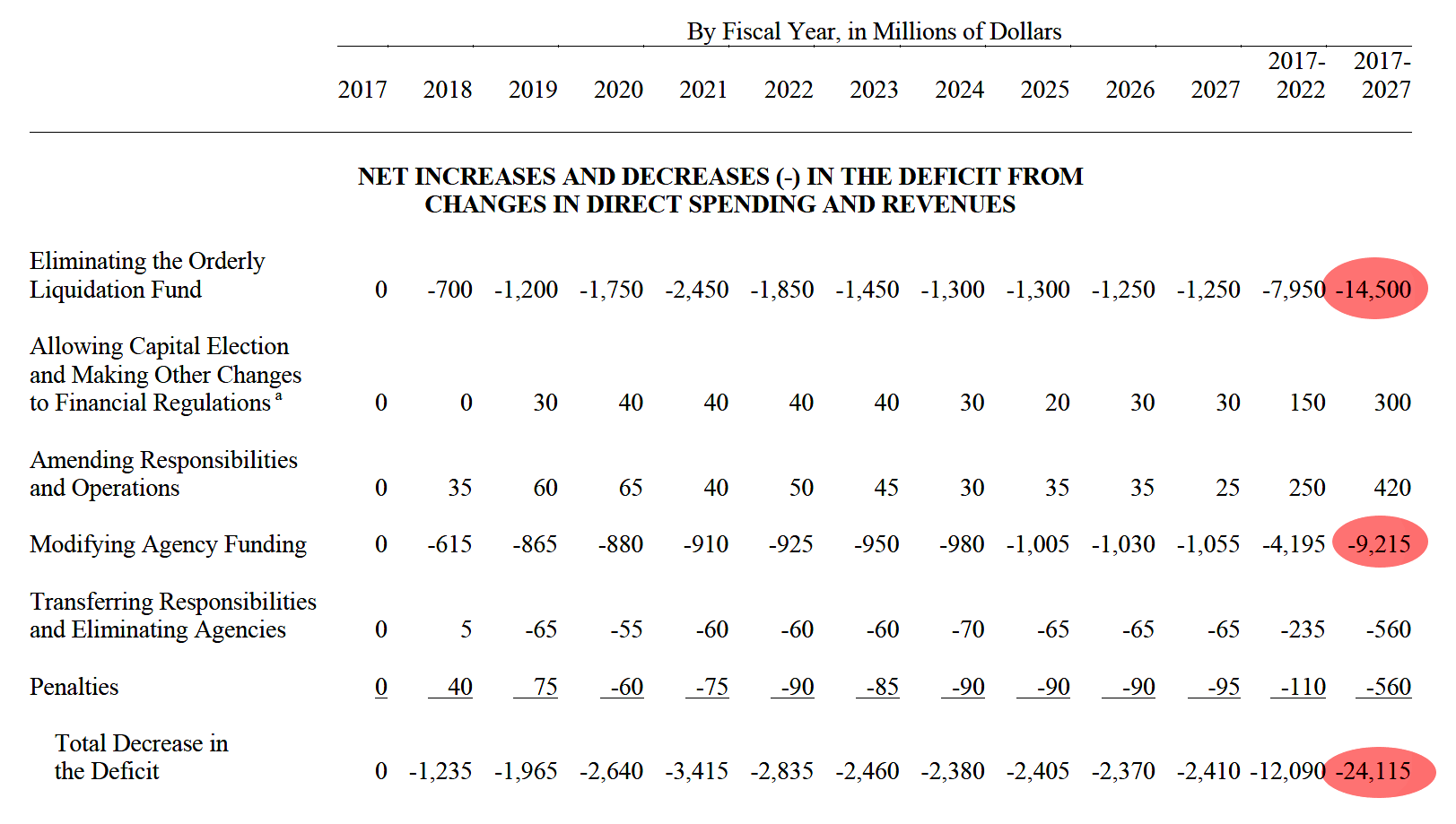Here’s a helluva weird story from Jim Puzzanghera of the LA Times:
The House Republican legislation scaling back Dodd-Frank financial regulations would reduce federal budget deficits by $24.1 billion over the next decade….Would reduce federal spending by $6.9 billion from 2018 through 2027….The bureau received $565 million in the 2016 fiscal year….The House Republican legislation would reduce the bureau’s funding to $485 million in 2018, and the CBO estimated that Congress would keep annual funding at about that level, adjusting for inflation, over the next decade.
So the bill would (a) reduce funding by $800 million, (b) reduce spending by $6.9 billion, and (c) reduce deficits by $24.1 billion. How do we get from $800 million to $24.1 billion?
I’m glad you asked! And trust me, you’re going to love the answer. Here’s how it breaks down:

This is a work of art. The savings come almost entirely from two places: eliminating the Orderly Liquidation Fund and modifying the way Dodd-Frank agencies are funded. Here’s the impressive part: neither of these things actually saves any money.
The OLF is funded entirely by the financial industry. If the government has to liquidate a big bank, it foots the bill and then recoups the money via a fee on the banking sector. However, the money has to be spent immediately, while it gets recouped over time. So it’s possible that, say, the feds would spend $10 billion to rescue a bank in 2027, but all the money would be recouped in later years. That counts as a $10 billion deficit in the the ten-year window 2018-2027.
So CBO guessed the probability of the OLF being used in each of the next ten years, along with the possible cash flow imbalances, and then calculated the expected value. They came up with $14.5 billion. CBO acknowledges that this estimate has “considerable uncertainty,” and that’s true. More to the point, though, the whole thing is just gimmickry. Using the OLF will cost the government nothing (or close to nothing), but expenses might fall inside the ten-year window while revenues fall outside the ten-year window. That’s all.
Then there’s the agency funding. It gets reduced $800 million, but somehow that becomes a deficit reduction of $9.2 billion. This one is even more impressive. Two agencies are affected—NCUA and CFPB—which currently get their funding from outside sources. This means their outlays count as “direct spending.” Under the Republican law, their funding would come from Congress and be subject to annual appropriations. For some reason—and I admit this remains inscrutable to me—reducing “direct spending” and replacing it with the same amount of appropriated spending counts as deficit reduction even though CBO assumes that actual funding levels won’t change.
This is the immaculate conception of congressional legislation. It doesn’t actually reduce spending more than trivially, but thanks to obscure budget gimmicks it gets scored as a $24 billion reduction in the ten-year budget deficit. It’s magic! Maybe it’s the power of the orb at work.1
1You all know what this refers to, don’t you?

















